Milo Đukanović has, since 1991, served multiple, overlapping terms as both president and prime minister of Montenegro, a charming country located on the Adriatic coast of the Balkans, and is the long-term president of the Democratic Party of Socialists of Montenegro.
For more stories from The Media Line go to themedialine.org
Known as the architect of Montenegro’s independence, he is one of the longest-ruling politicians in Europe. Đukanović, who was born in Nikšić, Montenegro’s second largest city, graduated from the country’s public university, Veljko Vlahović University (now called the University of Montenegro), with a degree in tourism studies.
He was elected to his second term as president in 2018 (the first term was from 1998 to 2003), winning by a large margin, and making him both the second and fourth president of Montenegro; he served six terms as prime minister.
But all is not smooth sailing. The country's government collapsed after a vote of no confidence on August 20, due to a disagreement over a deal to regulate ties with the Serbian Orthodox Church, just months after a no-confidence vote in February also toppled a different coalition government. It is now up to Đukanović to appoint a new prime minister, as the veteran politician leads the country through choppy waters.
TML: President Đukanović, thank you for welcoming me to your office here in your beautiful capital Podgorica.
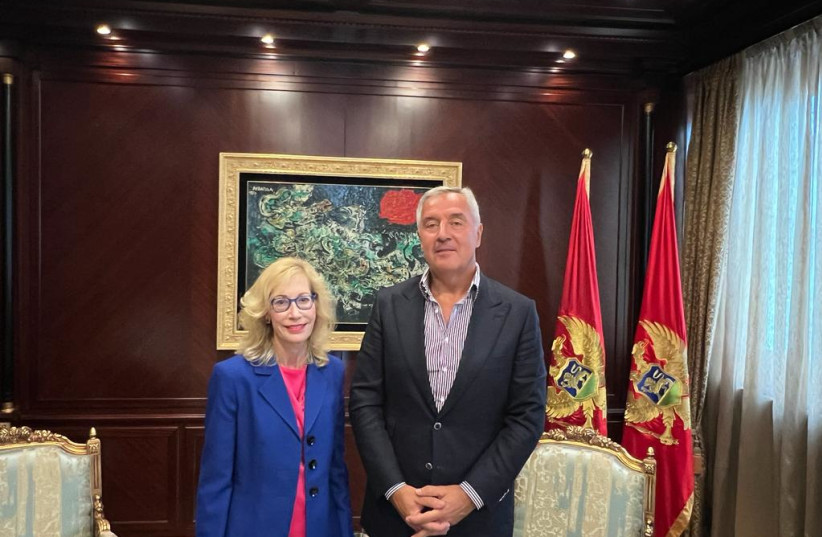
Tourism is an important economic sector for Montenegro. As we emerge from two years of COVID taking its toll on travel-related commerce, the tourism industry was hit hard with new challenges, including the Russian-Ukrainian war and fuel prices. How is that conflict impacting Montenegro in terms of tourism and in other areas? How are we seeing the impact of that war?
Milo Đukanović: It is clear that these geopolitical, economic and energy issues you’ve mentioned have an impact on tourism turnover, especially in such a country as Montenegro, given the size of its economy and given the share of tourism in our GDP. In the pre-COVID period, in 2019, our GDP amounted to €4.3 billion to €4.9 billion [$4.8 billion to $5.5 billion at that year’s average exchange rate], €1.1 billion of which was created from tourism.
This is just to illustrate how important tourism is for our GDP. Actually, there is a great trend in tourism in terms of its importance and its share of our GDP. Even in the former Yugoslavia tourism was an important part of the economy of that country, but it was not dominant compared to the industry. Today it does have this dominant position over all the other economic sectors.
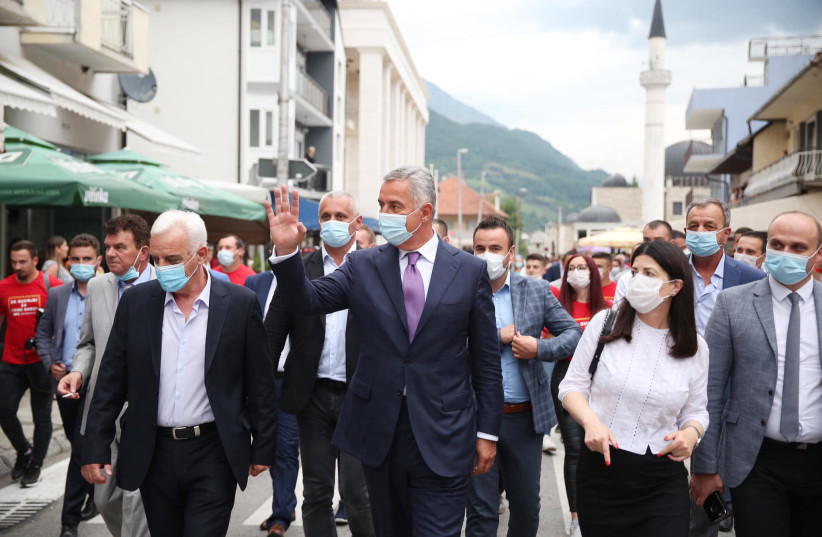
This is also at the same time period when we are restructuring our tourist offerings. Because back then in the former Yugoslavia times, Montenegro was just another average tourism destination. But over the course of the past 10 or 15 years, Montenegro has announced much more potential in that area, and it basically has created an ambition to compete with the most developed and successful tourist destinations in Europe.
And we did succeed in this endeavor in the period from 2006 to 2019, or from the period that we became independent in 2006 until 2019, which was the start of the global pandemic. We did manage to position Montenegro as a novel, successful, and developed tourist destination.
Back then, of course, in 2019, we faced the COVID pandemic. Now there are other aggravating circumstances because both Russians and Ukrainians are important guests for us. And it’s clear that they won’t be coming this year, so that part of the tourism turnover is not here.
And Europe, which is the most important market from where the tourists are coming, is facing its own crisis because the conflict in Ukraine is affecting Europe as well, as you know. This is producing an energy crisis and also severe fears and insecurities in Europe.
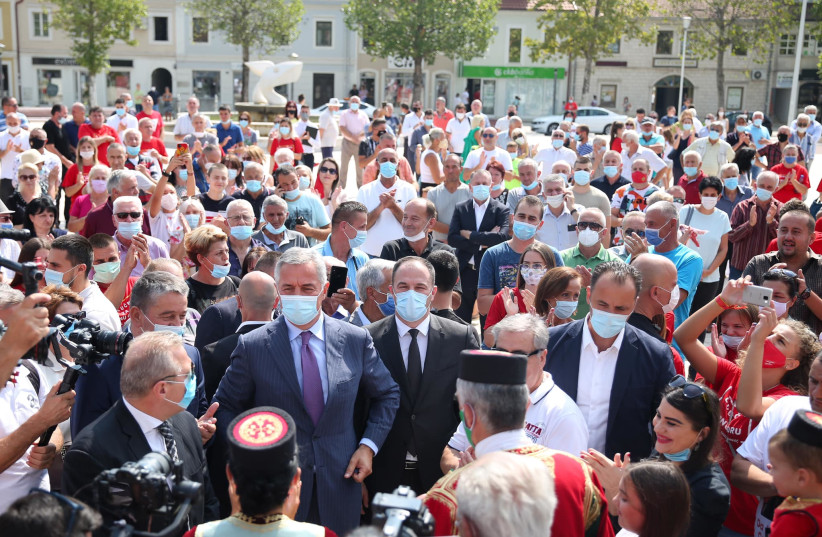
And after all, there is a very dangerous inflation rate in Europe as well. So when you take a look at the economic perspectives in Europe currently and the data, you get the idea why that part of the tourism turnover is also lacking this year.
I had a chance to read yesterday that industrial product prices in the eurozone grew by 36.9% in a year. We also read that Germany in the second quarter this year had a stagnation rate of 0% growth. So apparently there are economic troubles in Europe, and this will have an impact on both tourism and investment.
TML: 1.6 million was the number of tourists that I had seen around 2019. Do you have any projection of where you are for this period after COVID?
Đukanović: It was actually 2.6 million tourists with 14.5 million overnight stays. And again, about €1.1 billion in revenue. This was in 2019. In 2020, we had a severe drop. Montenegrin GDP dropped by 15% in 2020. In 2021 it grew by 10%. And 2022 is still a year of recovery. But unfortunately, the recovery rate is being affected by inflation and by the Russian-Ukrainian conflict.
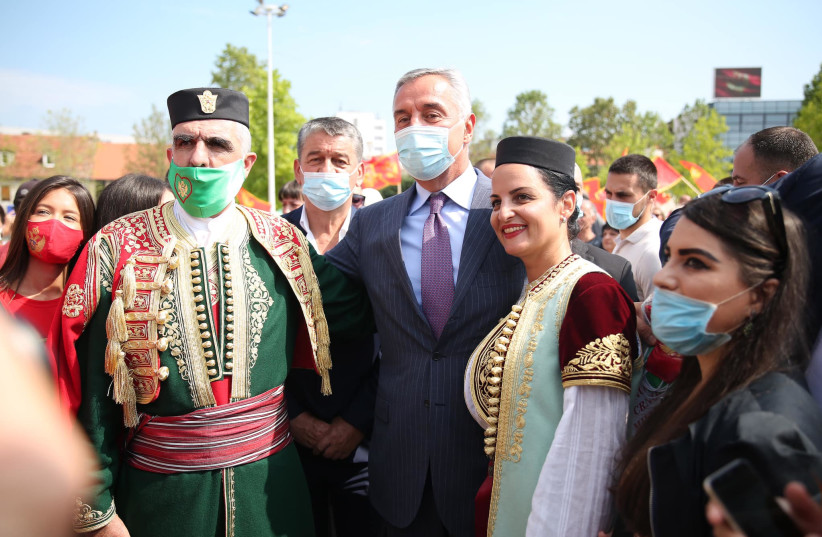
TML: Is it over? Is the worst over?
Đukanović: Well, there are grounds to fear that this can last for a while. But again, it’s not possible or feasible, or reasonable to expect that one could predict the length or the duration of the conflict in Ukraine. Cynics would say that even Vladimir Putin himself does not know how long it’s going to last.
So it’s hard to predict just how long this is going to last and to say if the worst is behind us because this is apparently a conflict which is devastating Europe. But in any case, we are very cautious in this part of the Balkans, because what happens in Ukraine is very near our own home. And a couple of years ago we did have a chance ourselves to experience all the dreadfulness of Putin’s policy.
We had an attempted coup here in 2016, and the political background of that attempt was the same as in Ukraine today. Back then, Montenegro was about to join NATO, and Putin decided not to let us do that. Unfortunately enough for us, he tried to prevent us from joining NATO by attempting a coup with the support of those political parties loyal to him here. He had intelligence agents, of course, but he failed. So probably learning from that experience, he used much more power in Ukraine and much more military.
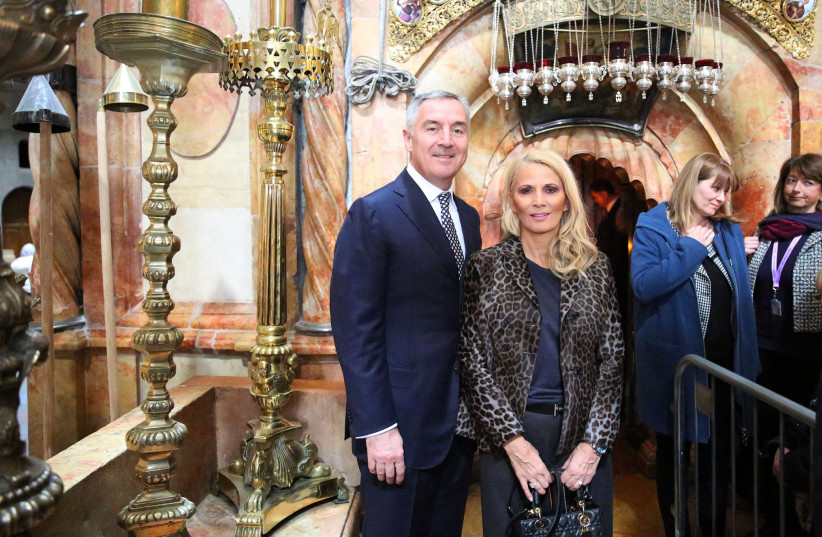
TML: You anticipated my next question, which you really answered, but my question there is, did you really think that President Putin would go to the lengths that he has in terms of this war? And some argue that it is related to NATO like what you went through.
Đukanović: I have to admit I did not see this coming. I also talked to a number of political counterparts from the West ahead of the aggression. My argument in those meetings was, [that] I can’t see why he would do such a thing. Of course, he wanted to draw attention to the importance of Russia as a global player, and he succeeded in that because everyone in Europe and the United States was looking to see what would happen.
Secondly, this was a time when the sanctions were removed by Mr. Biden’s administration from the Nord Stream 2 [gas pipeline from Russia to Germany] project, which was another benefit for Putin.
And the third benefit for him was that the energy prices went up.
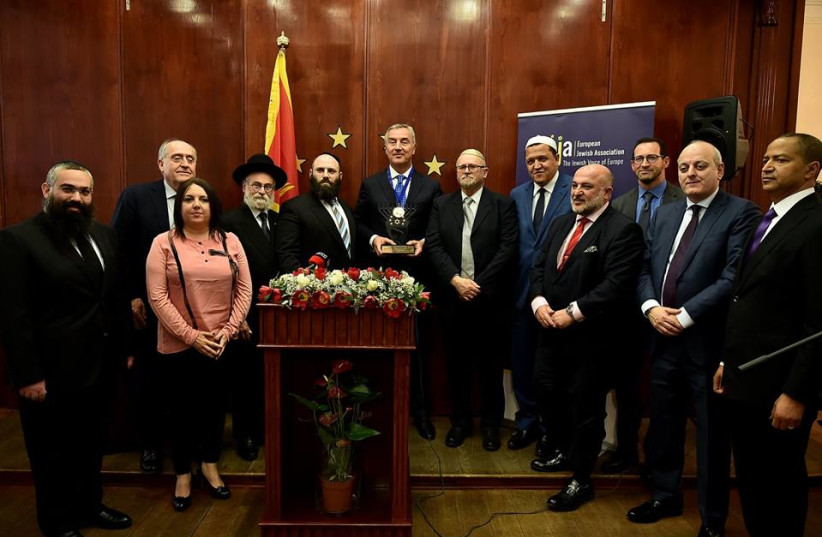
So based on all those benefits, one could believe, reasonably, that he has already fulfilled his objectives and that there was no reason for him to do what he did. And again, he proved us wrong. Looking from this point in time, it seems to me that he is actually attempting to rewrite history.
He wishes to push back the world into the Cold War era and to use “special operations” like the one in Ukraine to bring back that level of importance that the Soviet Union had in the Cold War era now to Russia.
Needless to say, I don’t think this can happen in reality. One cannot just spin back or return. It could be that what’s going on in the state of affairs will bring us into some new geopolitical structure. Probably yes, but if you ask me if the old geopolitical order from Cold War times will return, I don’t think so.
"He wishes to push back the world into the Cold War era and to use “special operations” like the one in Ukraine to bring back that level of importance that the Soviet Union had in the Cold War era now to Russia."
Milo Đukanović
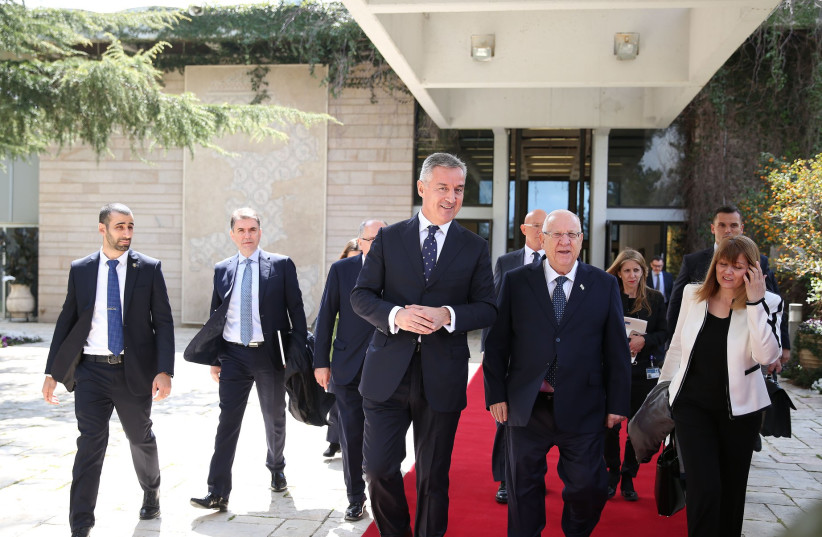
TML: You have a relationship with both sides, with both Ukraine and with the Russians. Do you feel that Montenegro could be a place to help, to bridge the gap [and] bring the two together? It’s certainly needed.
Đukanović: Yes, you’re right, we have excellent relations with both Russia and Ukraine. Some time ago we celebrated three centuries of official interstate relations between Russia and Montenegro. But as of now, we have become a part of the list of enemy countries that Russia formed. The geopolitical disturbances went a bit too far, and I’m afraid that the influence of Western Balkan countries and small countries such as Montenegro will not suffice for that.
TML: Why?
Đukanović: An answer to that would require an in-depth analysis. And again, I already said this: In my opinion, the trigger to this war was the unrealistic ambition of Mr. Putin to rewrite history. This is without any question whatsoever the most important part of the crisis. Let me remind you that this crisis is the first crisis in recent times where open threats are made to use nuclear weapons.
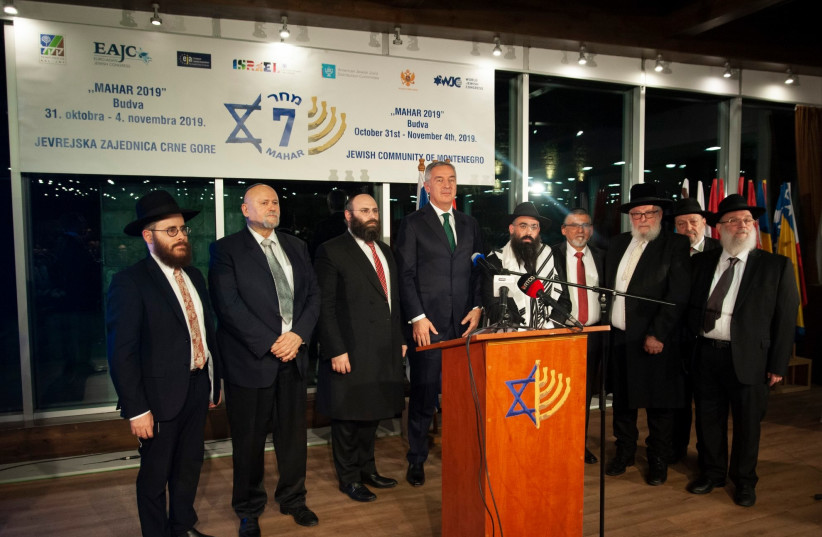
But there is also at the same time probably more to it; this is not the entire explanation of the conflict. And this actually shows that there was a need to balance the geopolitical relations much more carefully from the Cold War until today, which was not the case, unfortunately.
So we will need to show a new sensibility, all of us, in the coming period. This is why I said that I was sure that we will not be coming back to the global order that we had in the Cold War era. But there will be a new one developing. And of course, for me as a European, the most important question is, where will the place of Europe be in that new geopolitical order?
"The trigger to this war was the unrealistic ambition of Mr. Putin to rewrite history."
Milo Đukanović
TML: Where will that be?
Đukanović: I do hope we manage to learn an important lesson from the Russian aggression against Ukraine. I believe that we’ve finally managed to understand properly that the Russian aggression against Ukraine is an aggression against the European values system. And I hope this made us realize that it was necessary to complete the process of unification of Europe. This especially comes from the perspective of the Western Balkans as one of the regions of Europe.
Again, in the past 10 or 15 years, we had a chance to witness a lack of decisiveness toward this unification of Europe process when it comes to integration of the Western Balkans. I also believe this experience additionally pointed to the importance of the Euro-Atlantic partnership. It will be easy for you to remember from a couple of years ago messages coming from both sides of the Atlantic Ocean that basically pointed toward the irrelevance of NATO, which is nonsense per se.
It is clear to everyone that the Euro-Atlantic partnership is a healthy one because it rests on common values. It’s clear: Europe needs to unite, and Europe needs to protect and strategically improve its partnership with the United States. Finally, it’s clear that Europe needs to define its strategic policies much more clearly and precisely. First of all, foreign policy and its security policy. So Europe needs to have much more sensibility for its neighborhood: Russia, the Middle East, and North Africa.
TML: Mr. President, you’re speaking collectively now. Let’s look at Montenegro and its relationship with the United States. You’ve had bipartisan relationships with the United States over the years, meaning many of the officials coming here, and you’ve had defense relationships with the United States. Where do you see them getting stronger? What’s needed? What’s missing?
Đukanović: I look at our relations and cooperation with the United States of America very positively and affirmatively. This comes from that time period when the Western Balkans and former Yugoslavia were the top priority of American foreign policy. This is the time of the Clinton administration.
During that period the United States helped us immensely, helped us to protect peace and our multiethnic community. It helped to protect us from [Slobodan] Milošević’s aggression. It helped us to wisely choose our foreign policy priorities, such as the Euro-Atlantic integration. And it helped us by strongly supporting our NATO membership. And then, as you will remember, America over time developed more important foreign policy priorities, such as the fight against terrorism. And some unfinished things have remained here in the region.
Because Bosnia and Herzegovina is still a dysfunctional country. Northern Macedonia remained in conflict with first Greece and now Bulgaria. And Serbia is still in a problematic situation because of Kosovo. What we had was a deficit of attention from the United States. And we had a lack of initiative and decisiveness from the European side, and I would like to refer back to this. Basically, they were reluctant to take the lead role in integrating the Western Balkans into the European Union. And as you know, in geopolitics there is no vacuum.
So if the European Union and the United States are not here, some third countries will come. First and foremost, Russia will come. And as I was saying, Russia has started strongly infusing its anti-Western policies into the region ever since 2016 and the attempted coup in Montenegro.
What we have now is a slow return of that attention and focus by the United States.
Milo Đukanović
To make a long story short, it seems to me that the United States still has an idealized picture of the state of affairs in the Western Balkan countries. It could be that this is some geopolitical tactic. I could assume so, because if the Indo-Pacific area is the top priority for them, and if the second priority for them is the Russian-Ukrainian situation, it would be reasonable to expect that they would not have the same level of focus and attention for the Western Balkans, for daily management of what’s going on here. But it would be a dire mistake to overlook and not to recognize in a timely manner that what happens in Ukraine reflects here in the Western Balkans.
TML: Your small nation has had bilateral relations with numerous countries in the Middle East, including Israel, Turkey, and the UAE. In 2020, a Montenegrin Consulate was announced to open in Istanbul and Turkey appointed an honorary consul in Montenegro. In 2020, there were over 2,000 Turkish businesses registered in Montenegro. And Turkey represents Montenegro in many countries where there are no diplomatic relations. What’s the common bond?
Đukanović: There is a long, well-founded tradition of the Ottoman Empire in the Western Balkan region. In addition to that, there were migration flows of population, including from Montenegro to Turkey. A direct consequence of those relations and those migrations is reflected in the number of honorary consuls you talked about, and I had a chance to meet with them recently in Istanbul.
In several hotspots in Turkey, you have a high concentration of immigrants from Montenegro. So we try to maintain good relations with them and to enable them to keep a connection with their homeland. And I have to tell you that that relationship is very good. Of course, Turkey is interested in the entire region, not just Montenegro. It’s large, a very large country compared to all the countries here in the region, and an interesting partner economically speaking as well. And a partner of Albania, Northern Macedonia, and Montenegro in NATO as well.
So I would define those relations with Turkey as good ones. Of course, all the global events have a reflection here as well. As a big player in the international scene, Turkey is trying to find some space for itself. I would say that it is not satisfied with the level of attention it gets in Europe. And I would say that it is trying to reposition itself intensively in the Middle East.
TML: Looking to the Gulf countries, the UAE also has an embassy in Montenegro. In 2020, the UAE became your largest trade partner, with a total value of trade reaching over $31 million and climbing. What’s the largest area of investment today?
Đukanović: We also have a tradition of good relations with the United Arab Emirates going back to former Yugoslavia times and this movement, the Non-Aligned Movement, of countries at the time. We’ve tried to nurture those good relations, and we’ve had numerous initiatives for that part of the world.
This comes from a person who was the prime minister on seven occasions, and I was searching for good development partners. So this is the initial explanation when it comes to our good relations with the Emirates. In the meantime, we have developed a good friendship between the countries. We do have excellent relations with Abu Dhabi and the ruling family, Al Nahyan. We also have developed very good relations with the ruling family in Dubai, Al Maktoum. They are also present here as good investors. I have to tell you we have had only the most positive experience with them as investors.
TML: You were bestowed the first-ever European King David Award by the European Jewish Association in Brussels in 2019, for safeguarding Jewish life in Montenegro. Why is it that the Jewish community here is building while antisemitism is out of control in many European nations?
Đukanović: Yes, I received this award, and I was most honored to receive it. And this was an opportunity for me at the award ceremony to meet some Jewish religious leaders from Western Europe. I had a chance, for example, to meet and talk with the Dutch rabbi [Chief Rabbi Binyomin Jacobs] while waiting for the award ceremony. We talked about growing antisemitism. He told me about how careful he was in exercising his duties and living in the Netherlands, and about the efforts the country invested to ensure the safety of the community and his personal safety.
I had in Brussels back then the religious leaders from Montenegro, including the Jewish community leader. And they were telling me and the Dutch rabbi that they actually never felt that level of insecurity and the need for those protection and security measures that they had in the Netherlands. Again, there was never a large Jewish community in Montenegro, it’s a small community. But it’s also very important that they were never jeopardized, never.
Actually, we had more Jews in Montenegro at the end of the Second World War than at the beginning. Our country has a long tradition of multi-ethnic and multi-religious harmony. You will remember the early 90s in former Yugoslavia, and you will know that those conflicts turned out in the end to be religiously motivated or ethically motivated conflicts. You will also remember that this was the time of the last recorded genocide in Europe.
During those times, as a prominently multi-ethnic country, Montenegro did not have a single day of war in its territory, and we received displaced persons and refugees the equivalent of 20% of our population. We reaffirmed our multi-ethnic, multi-religious harmony.
You will find it interesting to know that when we had the independence referendum in 2006, Bosniak, Albanian, Croatian, Jewish, all these minority communities supported independence. It was a gesture of trust in the state of Montenegro. Of course, we are aware of the growing antisemitism you indicated, which is a concern for us and which we are openly discussing. It seems like the entire world and Europe are going Right. Unfortunately, the tendency is to maybe infuse some new energy into the darkest ideologies of the 20th century.
TML: Where does it lead here? Because on one hand you’re talking about an alliance in Europe getting stronger, and on the other hand you’re talking about one of the darkest periods in Europe.
Đukanović: Going Right is not something that’s exclusive to Europe. Other parts of the world are also going Right. We do have a problem, a global problem of a severe drop in the quality of politics globally.
We have an unbearable amount of populism because politics has become a reality in the worst meaning of that word, [like reality television]. It simply is not able to attract high-quality people into the profession any longer, Montenegro being an example. Because we do have high numbers of completely incompetent people in political decision-making positions.
Of course, again the problem is not present only here in Montenegro and the Western Balkans. Globally speaking, the quality of politics and politicians is sinking like a stone. This should be imperative for all of us to change that. Because of the negative processes we talked about, if we fail to stop them, dropping in quality may turn into something that will be unstoppable. I hope we will manage to do so. And then this vision of Europe I previously shared with you would come as a result of us stopping the populism and the dropping quality of politics.
TML: In 2012, the Jewish community and the government signed the act on mutual relations whereby Judaism was recognized as the fourth official religion. Rabbi Ariel Edelkopf, later named the first chief rabbi, opened the first synagogue with the support of your government. What has been the greatest result of that agreement since that recognition took place?
Đukanović: The act we signed back in 2012 that you referred to is one of the acts we signed with all the religious communities, following the examples of developed democracies when it comes to regulating the relations between the state and the religious communities. In some cases, we succeeded and in some cases, we did not.
As you know, we are struggling a bit with this same kind of agreement or contract with the Serbian Orthodox Church. The fact that we are struggling with signing such an agreement with them is a reflection again of the global relations I talked about. Because unfortunately both the Serbian Orthodox Church and the Russian Orthodox Church are just tools or instruments in the hands of Putin’s policy.
But to leave that aside, our relations with the Jewish community are motivated by an open and friendly ambition to continue to develop good relations with the Jewish community both in the country and abroad. We have high respect for the achievements and values nourished by the Jewish community globally. I had a chance to go to Israel on an official visit on several occasions. I had excellent relations with all the Israeli leaders in the past years, and I do believe strongly that Montenegro should continue nourishing those good relations with the State of Israel, which again in turn could lead to a transfer of some good experiences that will help Montenegro develop faster.
TML: You and Israel have had relations in the area of defense, in tourism. But I also know that in the areas of agriculture there is some lacking here in Montenegro. Is Israel a place that you would be looking for in terms of growing your small farms?
Đukanović: Absolutely. As you indicated, in defense and security we already have excellent cooperation. And we also already have good cooperation in tourism. But we should complement our tourist development with food production. And this is an area where Israel has exceptional experience that can help us. And another area is technological startups, where Israel could very much assist us because they’re a global leader in that regard.
TML: Why hasn’t that happened yet?
Đukanović: I did talk about this with Prime Minister Netanyahu, maybe a month ahead of this series of elections that ensued, and we actually agreed on that. Then there was a series of elections in Israel. I do expect us, once we consolidate the political situation here, that the government, I do expect us to continue the talks with the Israeli government to work toward that transfer of the experience.
TML: The strong ties between Israel and Montenegro have not translated into an official status. When is it that you foresee Israel and Montenegro opening up embassies?
Đukanović: Yes, you are right; Israeli interests are being represented by an ambassador sitting in Belgrade. And we also have a nonresident ambassador in Israel. But we do have a very hard-working honorary consul in Tel Aviv who is managing to cope with a huge workload when it comes to the relations between the countries. And I am sure that in the near future we will be expanding our diplomatic network, and of course, Israel would be one of the top priorities. But for the time being, we are slowly and cautiously, and carefully approaching that issue. Being a small country, being a developing country, we are simply trying to adjust our spending to make it correspond to our GDP.
TML: Your relationship with the Palestinian Authority also dates back to 2006, when they recognized Montenegro’s independence. Montenegro in return recognized Palestine in the UN General Assembly resolution. Can your small country have influence perhaps as a mediator here, too, between Israel and the Palestinian Authority?
Đukanović: You noticed this well; we do have good relations with the Palestinian Authority, again as a tradition and heritage coming from former Yugoslavia times. And we are really trying to be as constructive as possible, pragmatic, and to follow the policy in this regard of the United Nations and the key Western partners. So if there is any possibility for Montenegro to play a role in the region and that is something that would benefit both sides, we would gladly allow it to happen.
TML: In 2018, I was in Montenegro and afterward published the last interview with Jasa Alfandari in The Media Line on his amazing mission to find every Jew living in Montenegro, Albania, and Kosovo. A one-man band who was responsible for initiating Mahar, the annual regional conference in the Balkans from Albania, Bosnia-Herzegovina, Serbia, Slovenia, Montenegro, and Croatia. What has Mahar brought to Montenegro, and has anyone filled Jasa’s shoes?
Đukanović: It’s not that easy to fill the shoes of Mr. Alfandari, given his sensibility and his vision. We of course are continuing our cooperation with all his successors, in one way or another, trying to promote the interests of the Jewish community here. But on a general note, Mr. Alfandari is missed. And this is so not only because of the relations between the state of Montenegro with the Jewish community here. Because he was a true and honest friend of Montenegro, a very complex personality. And I was able to talk to him about many different issues. But whatever the issue was, I always recognized in him and his views the good intentions that he had and the responsibility he had for Montenegro.
TML: One of the longest-standing European politicians, what is it that drives you to wake up every day and stay in the seat of power?
Đukanović: It’s a good question. To tell you the truth, I never saw this coming. I never thought that I would stay that long in politics. Because I thought I would only stay in politics for a brief period of time. And I always wanted to return to the business sector, as a challenge. I always perceived it to be a challenge in my life.
But unfortunately, in the past 30 years of my political career there were so many events they could fill up a century. Initially, we had the war in former Yugoslavia, so somebody needed to make sure that we had peace here. We managed to do so, to succeed in that. And we managed to protect our multi-ethnic harmony.
And then the issue of the economic sustainability of Montenegro came up. We did manage to ensure that we had such sustainability and to improve it further. Then Milošević brought us into war with NATO. Someone needed to make sure that Montenegro is not bombed that much. We managed to do that. We opted to become independent again; Serbia was fiercely against it, not only in Milošević’s time but also during the rule of [Serbian leader Vojislav] Koštunica. We did manage in spite of that to regain our independence, without wars, without instabilities, which is not so commonplace in the Balkans.
Actually, it was the single such example. We also opted to join NATO. We managed to become part of NATO. And in the meantime, we realized some very expensive investments. And today we are in the lobby waiting to become part of the European Union.
What I’m trying to say is that we had a continuity over the past 30 years, a continuity of challenges. I did feel over the past 30 years at certain points in time where I felt that it was the right time for me to leave politics, to go to business. But unfortunately, these were brief periods of time, because as soon as I would leave I would feel that some important values or some important achievements would wobble or become unstable. So it was worthwhile for me to return again to politics to make sure that it remained stable.
Now we also in the past two years have had an interesting experience which was unavoidable. As you know, the government changed two years ago, which is of course not only unavoidable but a desirable thing in a democratic society. But again, some weaknesses have shown themselves. But all those values and achievements I talked about did manage to persevere and to remain still in force. Greater Serbian nationalism attacked and strongly opposed Montenegrin independence, but Montenegro managed to continue to be an independent state.
Different political views from the region also tried to ruin our good relations with the neighbors but they didn’t succeed. Also, there were some strong opponents of our NATO membership, but we did manage in spite of those to join it and to stay in NATO and to stay in the lobby to join the European Union, being a frontrunner and ahead of all the other candidates. It was worth the effort, I would say. Because we do have an achievement, a capital behind us. And I do believe that we will manage to reaffirm this strategic policy that we have, once we consolidate the new government, and that we will manage to bring Montenegro into the European Union. This is my long response to your question about what motivates me every morning.
TML: President Milo Đukanović, thank you very, very much for your insight and your hard work, and your time.
Đukanović: Thank you for this very interesting meeting.
